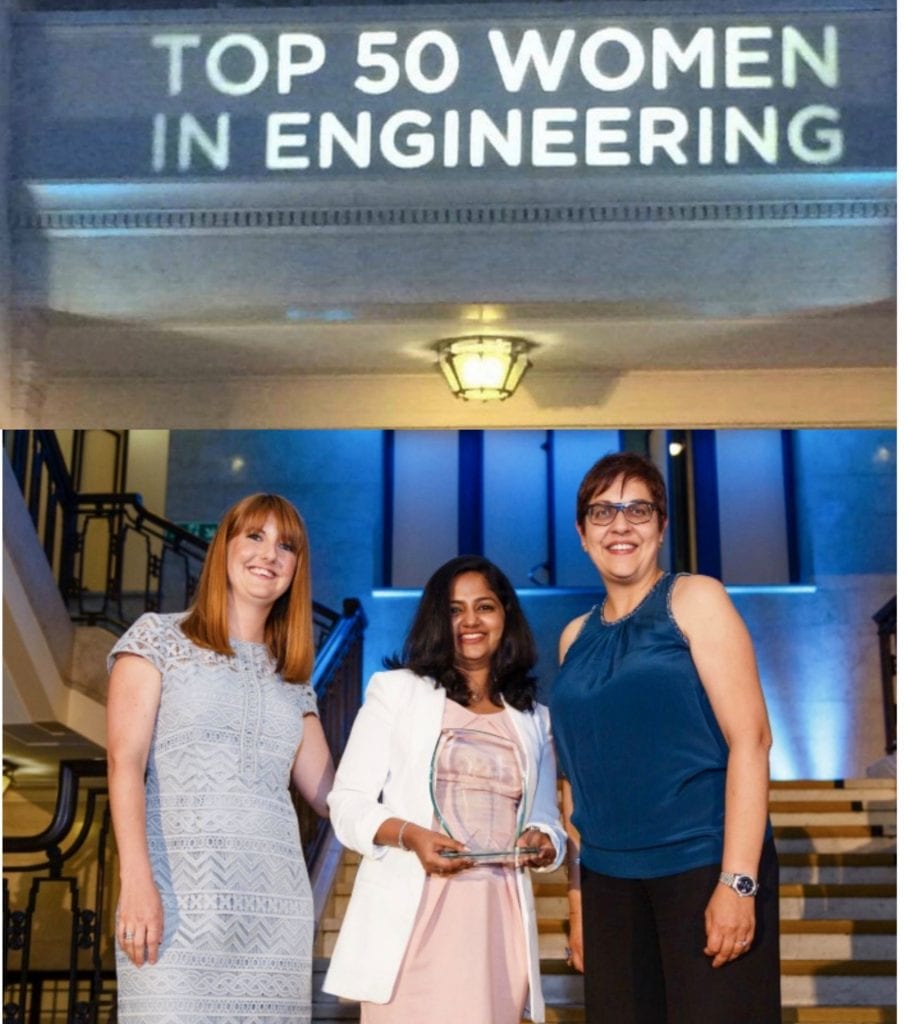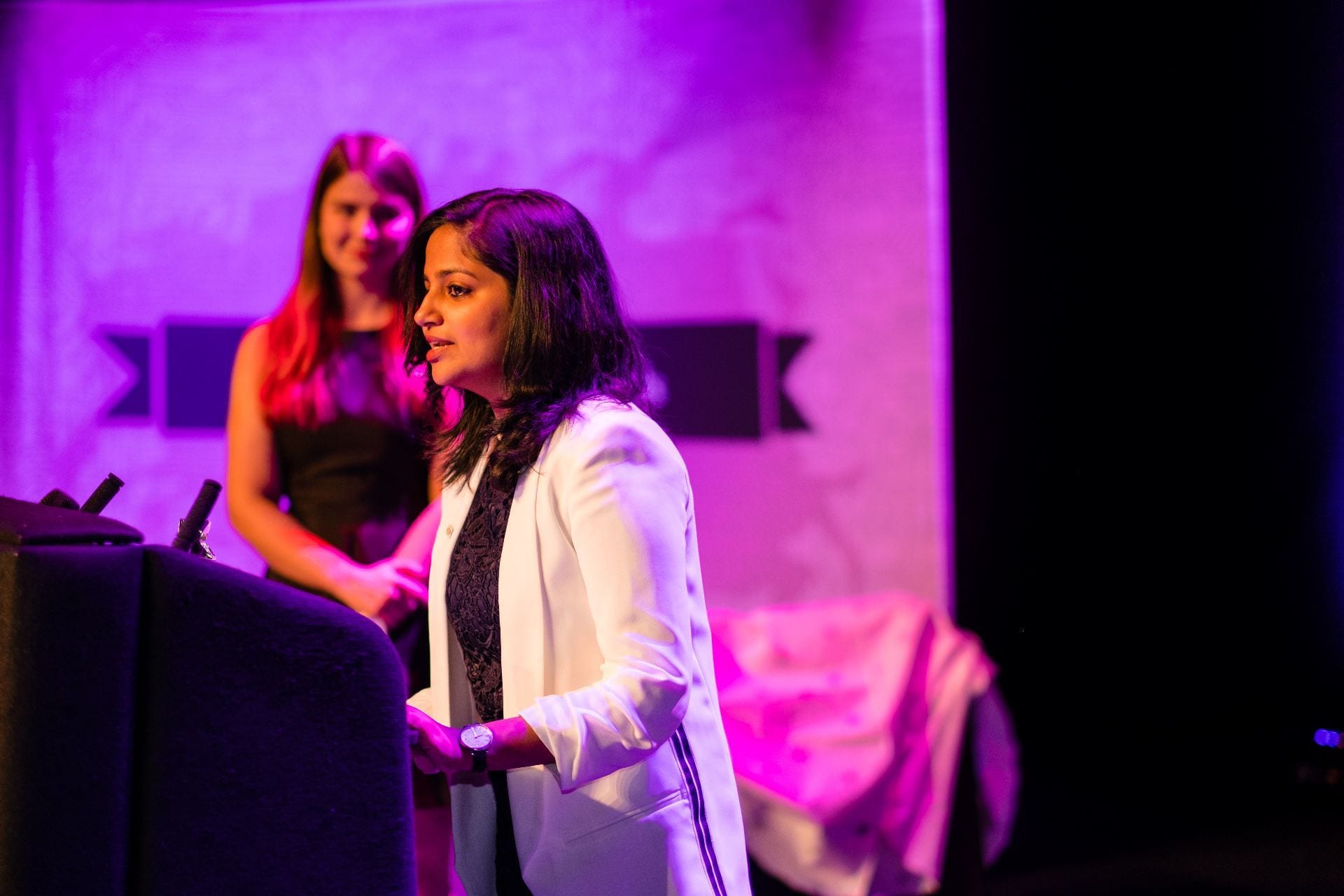Nikita Hari – PhD in Electrical Engineering and Vice-President of the Graduate Union – discusses her studies and pioneering social tech start-ups
Who I am
I like to describe myself as a scientist by profession, engineer by training, and social tech entrepreneur by passion! I’m finishing up my research in Electrical Engineering at Cambridge and am the co-founder of two social tech start-ups, Wudi and Favalley. My vision is to innovate, transform and empower society, and revolutionise education through technology. I aspire to provide initiatives for young people to become positive change-makers in society.
My entrepreneurial journey started off accidentally: in 2015, my supervisor resigned and suggested I move along with him, and my PhD rhythm toppled, leaving me feeling lost. After one of my Indian funding channels was cancelled due to changing circumstances, I also became ill and mentally exhausted. Since I was always involved in extra-curricular activities from childhood, I volunteered at Beyond Profit Cambridge as a conference director to keep myself motivated, and there I met Paulo Savaget. He invited me to be part of the Hult Prize Social Enterprise Competition, and Favalley was born after we became the runners-up among 50 teams from across the globe.
Favalley
Favalley was founded with the mission to convert slums into the next silicon valleys by engaging, training and matching marginalised youth in slums to digital India. Our start-up engages, trains, and matches marginalised youths with coding jobs. Students registered with a non-profit partner in their slum can join our course, with each stage consisting of gamified assignments and remote meetings with a tutor. Activities are mostly learn-by-doing, generating a performance portfolio for each student, before they move to Favalley.Work, where we actively match ‘graduates’ with companies. Potential employers access students’ profiles, portfolio and progress reports. The matching provides companies with customized workforce and students with a ten-fold increase in expected salary. Thus we aim to provide a better life and stable income to millions of young people living in overcrowded urban spaces in the world.
As PhD students with funding restrictions, we couldn’t give a full-time commitment to Favalley, so we were forced to shelve it for a while. By the time we got to work on it again, the impact of automation had begun, and companies had started shelving off their low-level coding workers. This was a huge blow to us, but then came demonetisation. We decided to pivot and reshape Favalley as a bridge for the marginalised people into the digital world by imparting them digital literacy, opening up new opportunities and avenues, and broadening their horizons and hopes for a better future. I expect to take Favalley further forward once I’m done with my PhD. At the end of the day our vision is to provide youngsters with a social platform where they are empowered, and we are definitely on a path to achieving that goal.
Wudi
Wudi came to life in 2016, co-founded by myself and my brother Arjun Hari. Wudi’s vision is to transform education through Artificial Intelligence. Digital transformation on one side opens doors to immense possibilities for improving education through virtual learning, apps, online tutoring and initiatives like Favalley; but on the other side, is leading to a breaking point where they could fail the race to train the next generation to rise up to face an unknown future that awaits us all. This motivated me and my brother to dig deeply at the existing educational systems across the globe.
Wudi imagines a world where a student aspiring to be a poet will be measured for their literary skills rather than being criticised for their poor skills in geometry
In India, we uncovered startling numbers of unskilled graduates, and rising student suicide and depression rates. With this we saw a great need to restructure our educational system, and identified that the root cause of all these issues was the fact that no focus was being given to an individual’s interest, but, rather a ‘focus’ was being imposed on an individual which eventually leads to mounting pressures, discontent, and unending struggle to fit into a professional life unsuited to the individual. Now that we discovered the why, we started asking ourselves, ‘now, how do we solve this?’ Unlike most countries, India has a rich diversity when it comes to the number of education boards, curriculum and institution types. To add to this, there is no centralised standardisation or normalisation, meaning two individuals completing the same course from two different institutions have no clear baseline to be evaluated against.

We realised that if we could crack this problem in the Indian context, then this could be replicated anywhere else around the globe, and thus Wudi was born. While there are many companies creating education content in innovative ways, nobody is really looking at solving the problem within the four walls of an average classroom that cannot afford high-tech facilities. This neglected classroom, if effectively used from a data perspective, could actually change the life and career of every student. For this, we developed a platform named Edu-Wudi to capture data from the existing classroom environment. Using Artificial Intelligence modules we can now derive meaningful connections and co-relations to identify skills and behavioral aspects of individuals so that precise focus can be given to the right skill development. Wudi will also ensure that all stakeholders in the system are aware of each student’s capabilities, so that they are measured against a fitting scale. Wudi imagines a world where a student aspiring to be a poet will be measured for their literary skills rather than being criticised for their poor skills in geometry.
I love working with young people, especially mentoring girls through outreach programmes and invited talks
Where next?
I’m currently weighing up taking up postdoctoral fellowships I have been awarded and a CEO job that I have been offered at a power electronics R&D spin-out which is an extension of my research. I will definitely be more involved with Wudi and Favalley and plan to have some spin-outs in the future related to my research. I love working with young people, especially mentoring girls through outreach programmes and invited talks, and working with female students to encourage them to take up STEM subjects and to help them understand that science knows no gender. I’m an invited ambassador for the Queen Elizabeth Prize for Engineering which also looks into policy changes by the UK government to address the tragic gender ratio of engineers in the UK. Once I have finished my studies, I will expand and strengthen my mentoring and outreach activities in India, and will be establishing a women for women mentoring scheme, and other initiatives to inspire and empower girls and young women.


